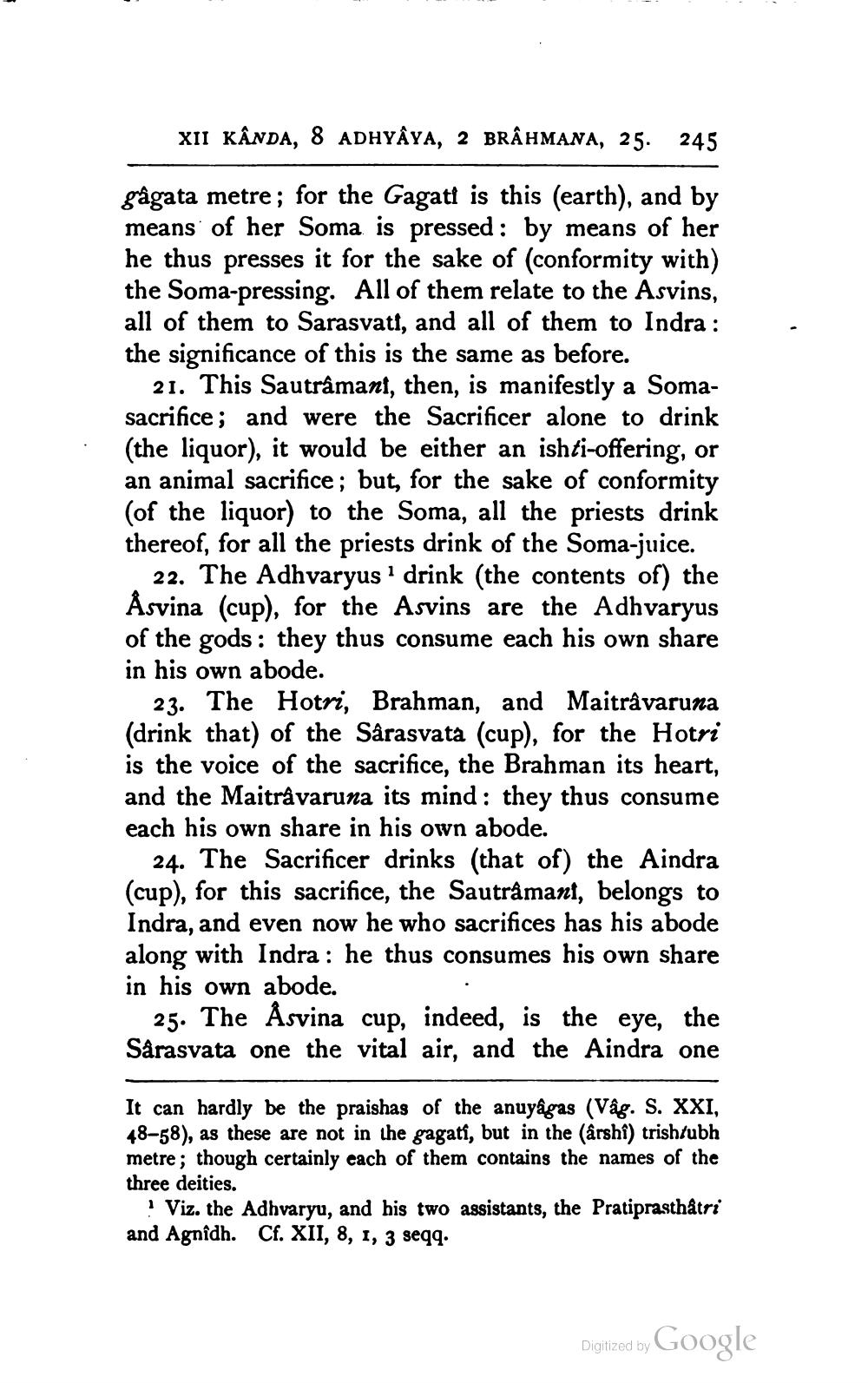________________
XII KANDA, 8 ADHYAYA, 2 BRAHMANA, 25. 245
gâgata metre; for the Gagatt is this (earth), and by means of her Soma is pressed: by means of her he thus presses it for the sake of (conformity with) the Soma-pressing. All of them relate to the Asvins, all of them to Sarasvati, and all of them to Indra: the significance of this is the same as before.
21. This Sautrâmant, then, is manifestly a Somasacrifice; and were the Sacrificer alone to drink (the liquor), it would be either an ishti-offering, or an animal sacrifice; but, for the sake of conformity (of the liquor) to the Soma, all the priests drink thereof, for all the priests drink of the Soma-juice.
22. The Adhvaryus1 drink (the contents of) the Åsvina (cup), for the Asvins are the Adhvaryus of the gods: they thus consume each his own share in his own abode.
23. The Hotri, Brahman, and Maitrâvaruna (drink that) of the Sârasvata (cup), for the Hotri is the voice of the sacrifice, the Brahman its heart, and the Maitrâvaruna its mind: they thus consume each his own share in his own abode.
24. The Sacrificer drinks (that of) the Aindra (cup), for this sacrifice, the Sautrâmani, belongs to Indra, and even now he who sacrifices has his abode along with Indra: he thus consumes his own share in his own abode.
25. The Åsvina cup, indeed, is the eye, the Sârasvata one the vital air, and the Aindra one
It can hardly be the praishas of the anuyâgas (Vâg. S. XXI, 48-58), as these are not in the gagatî, but in the (ârshî) trish/ubh metre; though certainly each of them contains the names of the three deities.
Viz. the Adhvaryu, and his two assistants, the Pratiprasthâtri and Agnîdh. Cf. XII, 8, 1, 3 seqq.
Digitized by
Google




